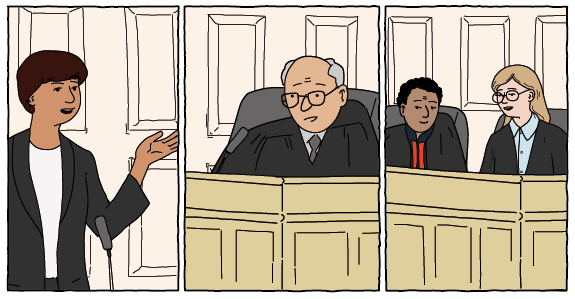2.2 Assistance
In contrast to relevance, assistance is a concept that is specific to the law of expert evidence. Assistance is linked to the idea you examined in the introduction: expert evidence is only justifiable if it helps the decision maker make an inference that they would not be able to make without the assistance of expert evidence. If the decision maker would be able to make sense of the evidence using their ordinary common sense, then the expert evidence will not be of assistance. But, if the decision maker would not be able to do this, then the evidence may be of assistance. According to King CJ in the South Australian case of R v Bonython,Footnote 1 this means:
whether the subject matter of the opinion is such that a person without instruction or experience in the area of knowledge or human experience would be able to form a sound judgment on the matter without the assistance of witnesses possessing special knowledge or experience in the area.
For example, in the murder case of R v Turner,Footnote 2 the defendant admitted the killing but sought to argue that he was provoked. The defendant’s legal team tried to admit the expert evidence of a psychiatrist about the likelihood that he was telling the truth. However, the application was refused because the ability to assess whether an individual was telling the truth was considered to be a skill within the ordinary competence of a juror, and hence, expert evidence would not provide assistance. Similarly, in the case of Honeysett v The Queen,Footnote 3 the High Court of Australia refused an application to call an anatomist to compare CCTV footage of the offender at the crime scene with footage of the suspect in custody. This was held to be something that a layperson was capable of. Where the expert had used the phrase ‘ectomorphic’ to refer to the offender’s body type, a layperson could simply have said ‘skinny’.
Sensitive topic
Box 1 ‘Rape myths’ and alternatives to expert evidence
There are some areas where the opinions or inferences of the average juror are said to be prejudiced and unreliable and, therefore, in need of the assistance of expert evidence, or other alternatives, to combat this prejudice. Perhaps one of the most high-profile areas is that of ‘rape myths’ in prosecutions for rape and other sexual offences.
Historically, the conviction rate for such offences has been lower than other serious offences, and some have put this down to prejudiced views on the part of jurors. Examples might include views that:
- those who are voluntarily intoxicated are partially responsible
- those who did not scream or resist consented
- that the onus should be on the complainant to communicate lack of consent
- that false allegations due to revenge or regret are common
- that male sexuality is uncontrollable once aroused
- that women give mixed signals about their interest
- that rape only occurs between strangers; or
- that male rape only occurs between gay men.
To address such concerns, different strategies have been pursued. One option is to call expert evidence to support jurors in making more reliable inferences from the evidence. However, in R v Miller,Footnote 4 the Court of Appeal endorsed a second approach – that of providing tailored directions to jurors to address the risk of inappropriate stereotypes and mistaken beliefs. Directions can be given by the judge at the start of the case or at the summing-up stage (The Criminal Procedure Rules 2020, Rule 25.14).
In the civil courts, there is a third method of supporting decision makers on matters outside their expertise. This is through the use of appropriately qualified ‘assessors’. Assessors are experts in a particular area who can be called upon to sit with a judge and participate in the decision. For example, in County Court proceedings for disability, sex, race, religion and belief, and sexual orientation discrimination, judges can appoint an appropriately qualified assessor with expertise in the particular area. To some extent, this overcomes the risk of lack of accountability of experts in that the assessor is formally part of the decision-making process rather than simply a witness.
In the following activity, you will have an opportunity to express your views on approaches to managing this issue.
Sensitive topic
Activity 1 Addressing ‘rape myths’
A variety of approaches have been suggested to address ‘rape myths’ in jury trials. Which, if any, of the following do you think would be most appropriate? Once you have made your selection, remember to click ‘Save response’. The results of the poll will be displayed in the comment.
Comment
The results of the poll are displayed below. You may need to refresh your browser to load the results.
Obviously, there is no ‘right’ answer here, as different people will have different views. However, you might like to reflect on what other people thought, and whether your answer matches the majority view.
Footnotes
- 1 R v Bonython [1984] 38 SASR 45 (South Australia).Back to main text
- 2 R v Turner [1975] QB 834.Back to main text
- 3 Honeysett v The Queen [2014] 311 ALR 320.Back to main text
- 4 R v Miller [2010] EWCA Crim 1578.Back to main text

